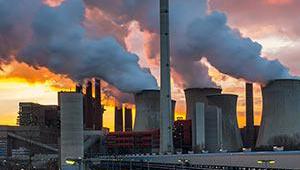By Jaimie Kaffash
15 January 2010
The government’s energy strategy must be reviewed to stop the increase in fuel poverty that is contributing to a high number of deaths, according to a think-tank.
A report from the Institute for Public Policy Research, which is to be released next month, says that ‘numerous fuel poverty programmes and hundreds of millions of pounds invested by the government and by the energy industry have failed to address the problem adequately’. It says there is an ‘urgent’ need for a review to stop more people falling into fuel poverty – defined as people spending more than 10% of their income on keeping warm.
The think-tank claims that unaffordable fuel costs contributed to the deaths of 36,000 people in 2008/09, a 49% rise over the previous year. There could be even more deaths this year, it says. While some of these could be attributed to the cold winter, other factors include: rising energy prices; falling income levels due to the recession; and the poor quality of UK housing stock.
Jenny Bird, research fellow at the IPPR, told Public Finance: ‘The government takes the issue seriously and has increased the amount of spending on the problem. But, although it is right to take measures in the short term, there needs to be a more strategic approach in the long term so this will not continue to be a problem in future winters.’
She said that the Energy Bill currently going through Parliament was an ‘attractive short-term measure’. But, she added, by making the energy companies subsidise the bills of the most vulnerable households, ‘what happens ultimately is that the costs get passed on to all the customers at an equal rate’, which would harm people on lower incomes.
Instead, the IPPR advocated further government spending through higher taxation. She emphasised that spending should go on energy efficiency measures, which would guarantee lower bills for longer.
A spokeswoman for Age Concern and Help the Aged told PF that the charity agreed with the IPPR’s conclusions. ‘There were 2.7 million pensioner households in fuel poverty last year and that looks set to increase due to the rising energy prices and the cold weather. That means the government’s target to eradicate fuel poverty by 2016 looks increasingly unobtainable,’ she said.
Fuel poverty minister David Kidney admitted that it was a ‘tough issue and there is more to do’. He added: ‘I know it’s hard for people, especially the most vulnerable, who have to cope with high energy prices and low temperatures this winter – which is why we are doing all we can to help people pay their fuel bills and save energy.
‘This winter older people have automatically got financial help with fuel costs and because it’s been freezing, some of the poorest people have received emergency payments. Since November the Warm Front scheme has carried out 25,000 heating or insulation jobs leading to permanently reduced fuel bills.’
15 January 2010
The government’s energy strategy must be reviewed to stop the increase in fuel poverty that is contributing to a high number of deaths, according to a think-tank.
A report from the Institute for Public Policy Research, which is to be released next month, says that ‘numerous fuel poverty programmes and hundreds of millions of pounds invested by the government and by the energy industry have failed to address the problem adequately’. It says there is an ‘urgent’ need for a review to stop more people falling into fuel poverty – defined as people spending more than 10% of their income on keeping warm.
The think-tank claims that unaffordable fuel costs contributed to the deaths of 36,000 people in 2008/09, a 49% rise over the previous year. There could be even more deaths this year, it says. While some of these could be attributed to the cold winter, other factors include: rising energy prices; falling income levels due to the recession; and the poor quality of UK housing stock.
Jenny Bird, research fellow at the IPPR, told Public Finance: ‘The government takes the issue seriously and has increased the amount of spending on the problem. But, although it is right to take measures in the short term, there needs to be a more strategic approach in the long term so this will not continue to be a problem in future winters.’
She said that the Energy Bill currently going through Parliament was an ‘attractive short-term measure’. But, she added, by making the energy companies subsidise the bills of the most vulnerable households, ‘what happens ultimately is that the costs get passed on to all the customers at an equal rate’, which would harm people on lower incomes.
Instead, the IPPR advocated further government spending through higher taxation. She emphasised that spending should go on energy efficiency measures, which would guarantee lower bills for longer.
A spokeswoman for Age Concern and Help the Aged told PF that the charity agreed with the IPPR’s conclusions. ‘There were 2.7 million pensioner households in fuel poverty last year and that looks set to increase due to the rising energy prices and the cold weather. That means the government’s target to eradicate fuel poverty by 2016 looks increasingly unobtainable,’ she said.
Fuel poverty minister David Kidney admitted that it was a ‘tough issue and there is more to do’. He added: ‘I know it’s hard for people, especially the most vulnerable, who have to cope with high energy prices and low temperatures this winter – which is why we are doing all we can to help people pay their fuel bills and save energy.
‘This winter older people have automatically got financial help with fuel costs and because it’s been freezing, some of the poorest people have received emergency payments. Since November the Warm Front scheme has carried out 25,000 heating or insulation jobs leading to permanently reduced fuel bills.’



















